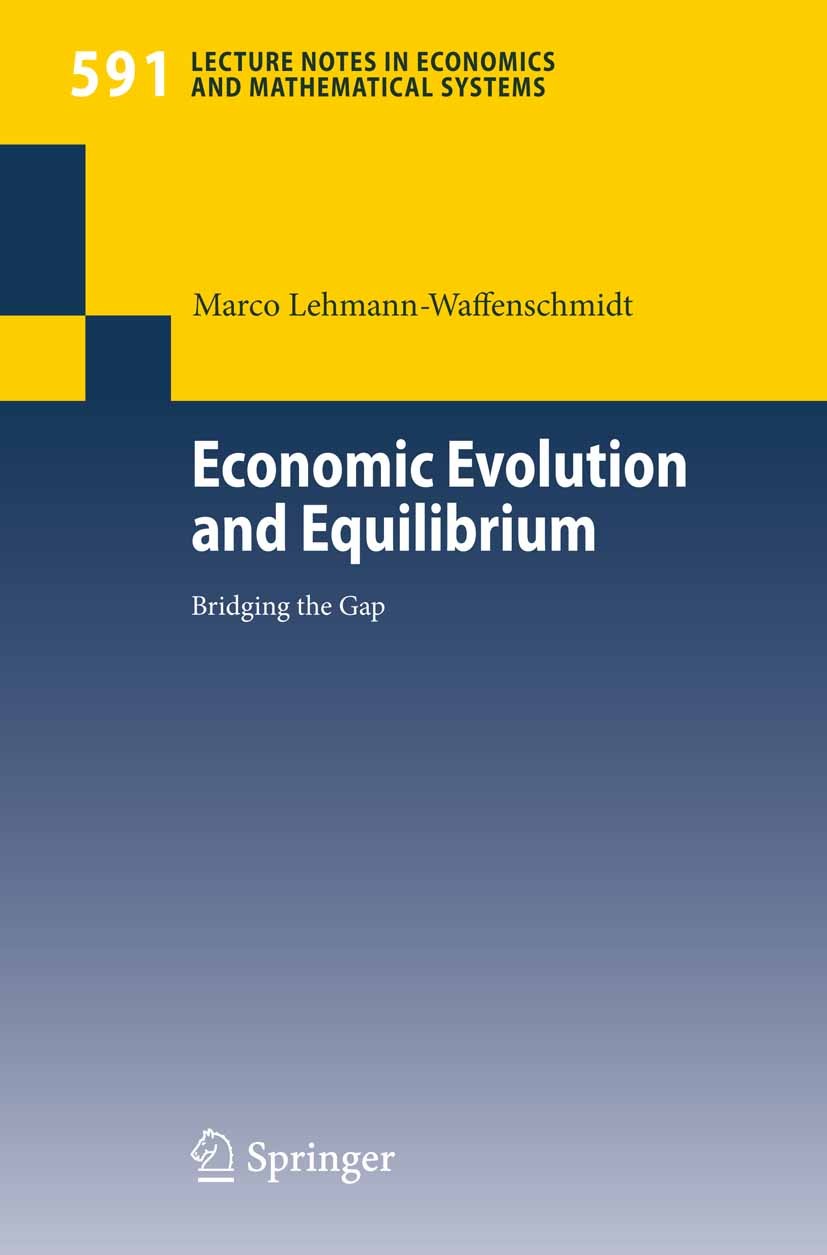| 书目名称 | Economic Evolution and Equilibrium |
| 副标题 | Bridging the Gap |
| 编辑 | Marco Lehmann-Waffenschmidt |
| 视频video | http://file.papertrans.cn/302/301590/301590.mp4 |
| 概述 | Includes supplementary material: |
| 丛书名称 | Lecture Notes in Economics and Mathematical Systems |
| 图书封面 |  |
| 描述 | theory,whichformalizesa dynamiceconomicsystemasa systemofdi?erence, or di?erential, equations. There equilibria mean ‘equilibrium trajectories’ of the whole evolution that, in a certain sense, are optimal. A particularly un- tisfactory feature of this conceptualization of an equilibrium, however, is the factthattheintertemporaloptimizingapproachcompletelypredeterminesthe whole future of the economic system. This “closed loop” approach gives rise to the common reproach that economic theory is predominantly concerned with the question of ‘how the economic system ought to behave’ rather than with the question of ‘how does it behave actually’. This is the point at which the new branch of evolutionary economics has made its entrance. In contrast to growth or business cycle theory, evolutionary economics perceives the evolution of the economic system as essentially “open” to true novelties that are unforeseeable by their very nature. This view clearly makes obsolete any conception of equilibrium that resorts to the idea of a ?nal state of rest, or to the idea of an intertemporally optimizing trajectory which is prespeci?ed ab initio by a system of di?erential equations and initial con- t |
| 出版日期 | Book 2007 |
| 关键词 | Bang-bang policy; Evolution; Open-loop; Piecemeal policy; economics; equilibrium; general equilibrium |
| 版次 | 1 |
| doi | https://doi.org/10.1007/978-3-540-68664-4 |
| isbn_softcover | 978-3-540-68662-0 |
| isbn_ebook | 978-3-540-68664-4Series ISSN 0075-8442 Series E-ISSN 2196-9957 |
| issn_series | 0075-8442 |
| copyright | Springer-Verlag Berlin Heidelberg 2007 |
 |Archiver|手机版|小黑屋|
派博传思国际
( 京公网安备110108008328)
GMT+8, 2025-12-29 04:22
|Archiver|手机版|小黑屋|
派博传思国际
( 京公网安备110108008328)
GMT+8, 2025-12-29 04:22


